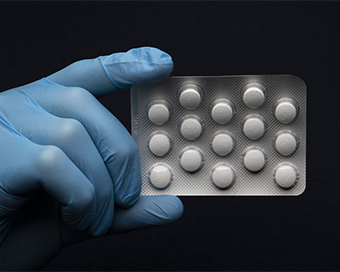Gallery
 PM Modi visit USA
PM Modi visit USA Only the mirror in my washroom and phone gallery see the crazy me : Sara Khan
Only the mirror in my washroom and phone gallery see the crazy me : Sara Khan Karnataka rain fury: Photos of flooded streets, uprooted trees
Karnataka rain fury: Photos of flooded streets, uprooted trees Cannes 2022: Deepika Padukone stuns at the French Riviera in Sabyasachi outfit
Cannes 2022: Deepika Padukone stuns at the French Riviera in Sabyasachi outfit Ranbir Kapoor And Alia Bhatt's Wedding Pics - Sealed With A Kiss
Ranbir Kapoor And Alia Bhatt's Wedding Pics - Sealed With A Kiss Oscars 2022: Every Academy Award Winner
Oscars 2022: Every Academy Award Winner Shane Warne (1969-2022): Australian cricket legend's life in pictures
Shane Warne (1969-2022): Australian cricket legend's life in pictures Photos: What Russia's invasion of Ukraine looks like on the ground
Photos: What Russia's invasion of Ukraine looks like on the ground Lata Mangeshkar (1929-2022): A pictorial tribute to the 'Nightingale of India'
Lata Mangeshkar (1929-2022): A pictorial tribute to the 'Nightingale of India' PM Modi unveils 216-feet tall Statue of Equality in Hyderabad (PHOTOS)
PM Modi unveils 216-feet tall Statue of Equality in Hyderabad (PHOTOS)The Badminton Association of India (BAI) has announced a 14-member-strong India squad for
- Men’s Sr Hockey Nationals to be played in division-based format from April 4
- Mensik denies Djokovic 100th title in Miami final
- KIPG: Son of a vegetable vendor, Bihar’s Jhandu Kumar eyes Worlds, 2028 Paralympics
- Hardik Singh credits hard work and team unity for receiving HI Midfielder of the Year award
- Djokovic, Alcaraz land in same half of Miami draw
Hydroxychloroquine may not be effective against coronavirus: Chinese study Last Updated : 16 Apr 2020 03:12:18 PM IST 
Hydroxychloroquine To treat people infected with the coronavirus (COVID-19), many, including the US President Donald Trump, have supported the use of the anti-malarial drug hydroxychloroquine (HCQ). However, the antimalarial drug might not be effective in treating coronavirus (COVID-19), claims a Chinese study.
Hydroxychloroquine is used to prevent and treat acute attacks of malaria. It is also used to treat discoid or systemic lupus erythematosus and rheumatoid arthritis in patients whose symptoms have not improved with other treatments.The anti-malarial drug has been identified by the US Food and Drug Administration (FDA) as a potential treatment for the coronavirus.For the findings, the researchers from china picked 150 hospitalised patients and conducted a randomised controlled trial at 16 government-designated COVID-19 treatment centres.According to the study appeared in the pre-print repository medRxiv which is yet to be peer-reviewed, the Chinese research team showed that hydroxychloroquine did not help patients clear the virus better than standard care.Another research, published earlier this month in the Canadian Medical Association Journal, stated that chloroquine, hydroxychloroquine and azithromycin are being used to treat and prevent COVID-19 despite weak evidence for effectiveness, and physicians and patients should be aware of the drugs' potentially serious adverse eventThe review provides an overview of potential harms associated with these drugs as well as their management based on the best available evidence.Potential adverse effects include cardiac arrhythmias-- Improper beating of the heart, whether irregular, too fast or too slow, Hypoglycemia-- It is a condition in which your blood sugar (glucose) level is lower than normal and overdose (chloroquine and hydroxychloroquine are highly toxic in overdose and can cause seizures, coma and cardiac arrest).According to the recent data from Johns Hopkins University, COVID-19 has so far infected over 2 million people and led to the deaths of over 137,000 in the world.IANS Beijing For Latest Updates Please-
Join us on
Follow us on








172.31.16.186







